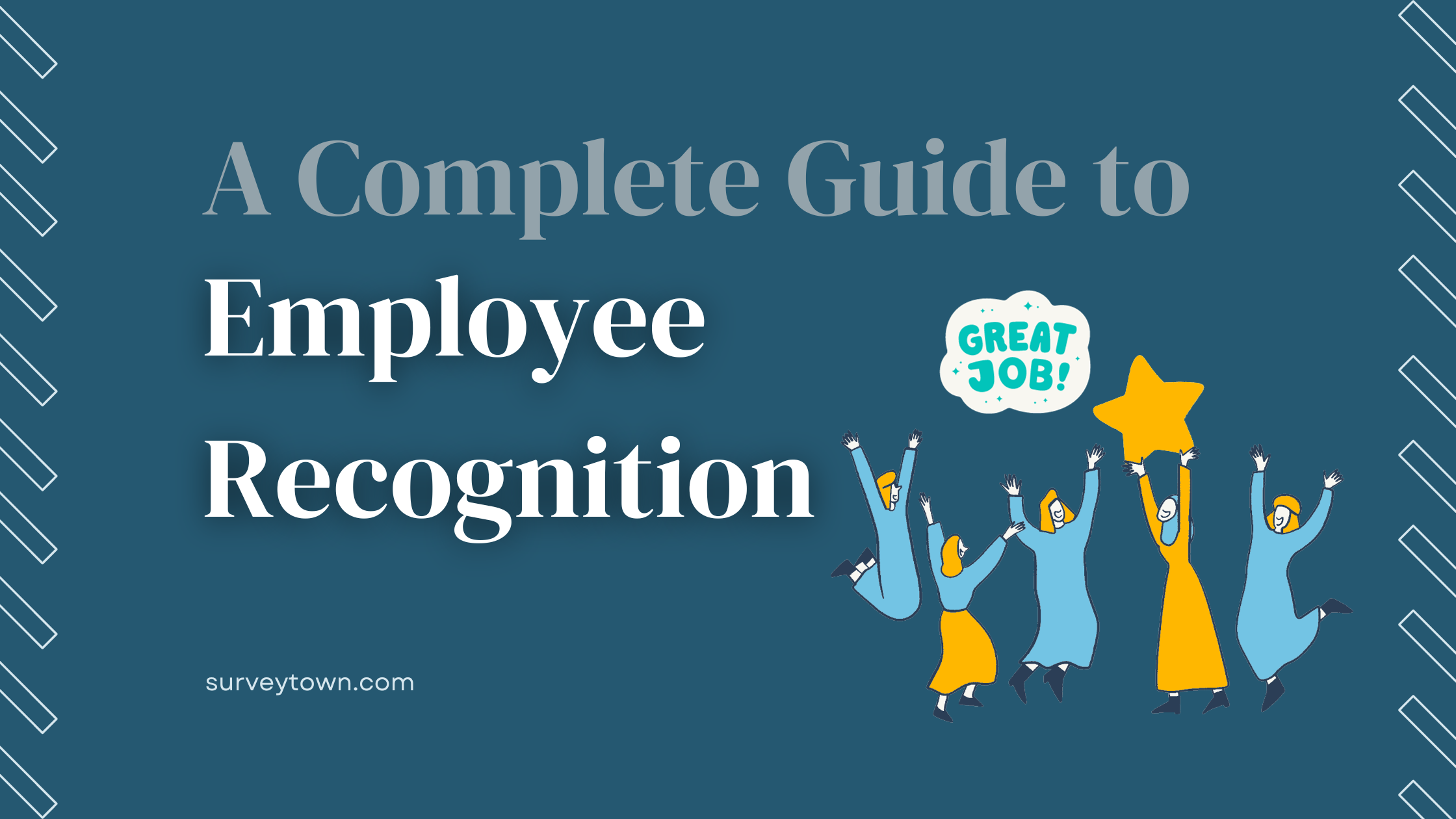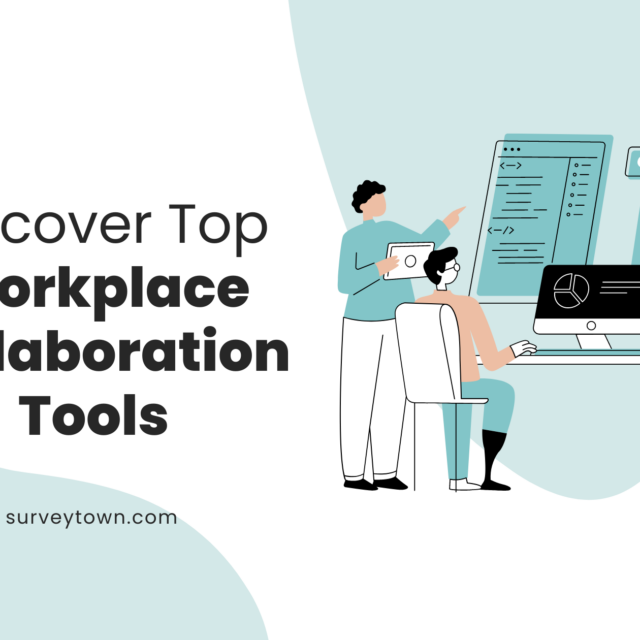In today’s fast-paced and competitive world, organizations must prioritize the recognition and appreciation of their employees’ hard work. By acknowledging their contributions, not only do you show your appreciation for their dedication, but you also inspire them to consistently perform at their highest level. Our comprehensive guide is designed to help you understand the importance of employee recognition and provide valuable insights into implementing effective programs. So, why is employee recognition so important? What are the best ways to recognize your employees? Keep reading this expertly crafted resource to find answers to all your questions!
The Power of Employee Recognition
Employee recognition is a game-changer when it comes to motivating and engaging employees. It’s the secret sauce that fuels their drive, making them feel appreciated for their hard work and ultimately leading to exceptional performance and unwavering loyalty.
- Boosts Morale: When employees are recognized for their contributions, it’s like a surge of adrenaline to their morale. They feel valued, acknowledged, and proud of the valuable work they bring to the table. This deep sense of appreciation translates into higher job satisfaction levels that fuel their motivation.
- Increases Productivity: Regularly acknowledging employees’ efforts acts as a catalyst for productivity. Knowing that their hard work will be recognized drives them to go above and beyond in delivering outstanding results. Their motivation skyrockets because they understand that every contribution matters and directly impacts the success of the organization.
- Enhances Retention: Recognition programs play a vital role in reducing turnover rates within organizations. By appreciating and acknowledging employees’ dedication, you create an unbreakable bond between them and the company—a connection so strong that leaving becomes unthinkable. Employees who feel recognized are more likely to stay committed long-term.
- Fosters Teamwork: Recognition programs have the power to foster collaboration among team members by shining a spotlight on individual achievements publicly or through peer-to-peer acknowledgment platforms. This creates an environment where teamwork thrives with support at its core, leading to increased synergy and collective success.
- Improves Company Culture: A culture built on genuine appreciation is the foundation for success in any workplace setting—where positivity reigns supreme, respect flows freely, and camaraderie flourishes among colleagues. Regularly recognizing employee contributions helps establish a culture where everyone feels valued, fostering loyalty and commitment.
- Drives Employee Engagement: Engaged employees are unstoppable forces working towards achieving organizational goals with a passion fueled by purpose. Recognition serves as a powerful tool in driving employee engagement by reinforcing desired behaviors aligned with company values. It ignites enthusiasm within individuals while creating a shared sense of pride in being part of something greater than themselves.
- Encourages Continuous Improvement: Recognizing accomplishments not only celebrates past successes but also fuels an appetite for continuous improvement within individuals and teams alike. It inspires employees to strive for excellence and fosters a growth mindset throughout the organization. By acknowledging their efforts, you create an environment that encourages innovation and drives progress.
- Supports Overall Well-Being: Employee recognition goes beyond professional achievements—it extends to personal growth and overall well-being. Acknowledging efforts in maintaining work-life balance, promoting a healthy lifestyle, and supporting mental health contributes to their satisfaction, happiness, and overall fulfillment. When employees feel appreciated holistically, they are more likely to thrive both personally and professionally.
Implementing a comprehensive employee recognition program is not just about rewards or accolades; it’s about creating a workplace culture where appreciation is fundamental. By recognizing your employees’ contributions consistently and genuinely across all departments globally, you build an environment that brings out the best in each individual while fostering collaboration among teams. This ultimately leads to higher morale, increased productivity, enhanced retention rates, improved company culture, greater employee engagement levels, continuous improvement initiatives, and overall well-being for everyone involved.
Impacts of Employee Recognition Programs
Employee recognition programs are not just a nice gesture but an essential tool for driving employee performance and fostering a thriving company culture. When employees feel appreciated and acknowledged for their efforts, they are motivated to excel in their roles. In this section, we will explore the profound impact of recognition on both individual performance and overall company culture.
1. Igniting Exceptional Performance
- Recognition serves as a powerful motivator that inspires employees to reach new heights. When employees know that their hard work will be recognized and rewarded, they go above and beyond to deliver outstanding results.
- Recognized employees feel valued, leading to increased job satisfaction and overall engagement. This translates into higher productivity levels as individuals strive to achieve personal and organizational goals.
- By acknowledging exceptional performance, recognition programs foster healthy competition among team members, fueling continuous improvement.
2. Nurturing an Empowering Company Culture
- A robust culture of appreciation creates a sense of belonging within the organization. Employees who feel valued by their peers and superiors develop loyalty towards the company.
- Recognition programs promote teamwork by encouraging collaboration among colleagues. When individuals acknowledge each other’s contributions, it cultivates a supportive environment where everyone feels empowered.
- Positive reinforcement through recognition reinforces desired behaviors aligned with company values while setting clear expectations for what is considered valuable within the organization.
3. Amplifying Employee Engagement
- Recognizing employee achievements boosts morale and establishes an emotional connection between employees and the organization.
- Engaged employees experience higher job satisfaction levels, resulting in improved retention rates.
- Recognition programs also enhance communication channels within teams as colleagues celebrate each other’s successes.
4. Attracting & Retaining Top Talent
- Companies with effective recognition programs become employers of choice due to their reputation for valuing employee contributions.
- Prospective candidates actively seek organizations that prioritize employee recognition, as it signifies a positive work environment and opportunities for growth.
- Recognition programs play a pivotal role in retaining top talent by providing ongoing motivation and job satisfaction.

Implementing Recognition Programs: A Step-by-Step Guide
At SurveyTown, we understand the importance of acknowledging and appreciating the hard work and contributions of our employees. That’s why we have carefully singled out a range of employee recognition programs that are proven to boost morale, motivation, and engagement in the workplace. Let’s dive into some of these highly effective programs:
1. Peer-to-peer appreciation
A peer-to-peer recognition program allows employees to shine a spotlight on their colleagues who have gone above and beyond in their work or made significant contributions. This fosters a sense of camaraderie among team members, creating a positive work culture where everyone feels valued.
2. Employee of the month
We believe in celebrating exceptional individuals by recognizing them as “Employee of the Month.” This prestigious title not only rewards high-performing employees but also serves as inspiration for others to strive for excellence.
3. Milestone celebrations
We know that reaching important milestones is an incredible achievement worth celebrating. Whether it’s years of service or completing significant projects, milestone recognition programs highlight loyalty, dedication, and commitment while reinforcing the company values.
4. Performance-based rewards
By rewarding top performers based on their metrics, employers create healthy competition that motivates others to continuously improve themselves. Whether through monetary incentives, public appreciation events, or personalized tokens of gratitude, these programs ensure that every employee feels valued and appreciated.
5. Team acknowledgments
Collaboration is at the heart of success within any organization. That’s why team recognition programs celebrate collective efforts rather than individual achievements alone, fostering unity among team members and promoting collaboration across departments.
When choosing which employee recognition program(s) best suit your organization, consider factors such as company size, culture, values, and industry norms. Remember that variety is key when implementing successful employee recognition initiatives – combining different types ensures inclusivity across all departments and levels within your organization.
Best Practices for Employee Recognition
As seasoned professionals in the field, we understand the importance of acknowledging and appreciating your employees’ hard work. In this section, we will walk you through the essential steps to create a successful program that brings maximum benefits to your organization.
Step 1: Defining Purpose and Goals
Before diving into creating a recognition program, it’s crucial to identify its purpose and goals. Are you looking to boost employee morale, enhance productivity, or improve retention rates? Clearly defining these objectives will shape the design of your program and ensure alignment with your organization’s vision.
Step 2: Establishing Clear Criteria for Recognition
To effectively recognize employees’ achievements or contributions, establish clear and specific criteria. This could include meeting performance targets, showcasing exceptional teamwork skills, or going above and beyond their job responsibilities. By setting transparent guidelines for recognition, you provide clarity on what behaviors are valued within your workplace.
Step 3: Choosing Meaningful Forms of Recognition
Consider various types of recognition that resonate with your company culture and values. Verbal praise from managers or colleagues can go a long way in showing appreciation. Written thank-you notes or emails provide tangible acknowledgments of outstanding work. Public announcements during team meetings highlight accomplishments while fostering a sense of pride among peers. Additionally, small rewards like gift cards or company-branded merchandise can serve as tokens of appreciation.
Step 4: Effective Communication is Key
Once you have defined the purpose, goals, criteria, and types of recognition for your program, it’s vital to communicate this information clearly. Utilize multiple channels such as email newsletters, intranet announcements, and posters in common areas like break rooms to ensure every employee understands how they can be recognized for their efforts. Transparency is key when it comes to fostering engagement through acknowledgment.
Step 5: Continuously Reviewing and Updating
Employee recognition programs should not remain stagnant. Regularly review and evaluate the effectiveness of your program by gathering feedback from participants, including both management and staff members involved in administering awards. Based on this valuable input, make necessary adjustments such as adding new recognition categories, modifying criteria, or adjusting the frequency of rewards.
By following these steps and consistently evaluating your program’s effectiveness, you can cultivate a culture of appreciation and recognition within your organization. Remember that employee recognition is an ongoing process that requires commitment from all levels of management. It’s not just a one-time event but rather a fundamental aspect of building a successful and engaged workforce.
Choosing the Right Recognition Program for Your Company
Are you looking to create a workplace culture that values and appreciates its employees? Do you want to acknowledge their hard work and contributions in a meaningful way? If so, then finding the right employee recognition program is crucial.
We understand the importance of recognizing and appreciating your employees’ efforts. An effective employee recognition program goes beyond simply acknowledging good work; it creates a positive work environment where employees feel valued and motivated. It is an essential tool for boosting engagement, productivity, and overall job satisfaction.
So, what should you consider when choosing the best recognition program for your organization? Let us guide you through some important ideas to help you make an informed decision:
- Clearly Define Your Objectives: Before diving into any program, clearly define what you hope to achieve with employee recognition. Are you aiming to increase teamwork or individual performance? Do you want to improve retention rates or enhance customer service? Understanding your goals will help you tailor the program accordingly.
- Consider Different Types of Rewards: A successful recognition program offers various types of rewards that cater to different preferences and motivations. These can include monetary incentives like bonuses or gift cards, as well as non-monetary rewards such as extra time off or public acknowledgment.
- Utilize Technology: In today’s digital age, software solutions can streamline the process of recognizing employees’ achievements. Look for user-friendly software programs that allow managers and colleagues alike to easily acknowledge outstanding work on a regular basis.
- Create Opportunities for Peer-to-Peer Recognition: While managerial recognition is important, peer-to-peer acknowledgment holds significant value too! Encourage colleagues at all levels within your organization to recognize each other’s accomplishments regularly.
- Align With Company Values: Ensure that your chosen recognition program aligns with your company’s core values and culture. This will reinforce those values among employees while fostering a sense of belongingness and pride in their work.
- Provide Clear Guidelines: To avoid confusion, clearly communicate the criteria for recognition and how employees can earn rewards. This transparency will motivate individuals to consistently strive for excellence.
- Measure Success: Implement a system to track the impact of your recognition program. Collect data on employee engagement, productivity levels, and retention rates before and after its implementation to gauge its effectiveness.
Remember, an effective employee recognition program is not a one-size-fits-all solution. It should be tailored to fit your organization’s unique needs and goals. By following these guidelines, you can create a culture that consistently acknowledges and appreciates the hard work of your employees.

Case Studies: Successful Employee Recognition Programs
In this section, we will delve into captivating case studies that showcase the power of effective employee recognition strategies. By exploring these real-life examples, you’ll gain invaluable insights into what makes these programs so successful.
Example A: Leading the Way in Global Technology
- This global technology company has taken employee appreciation to new heights with its comprehensive recognition program.
- They have implemented a peer-to-peer system that empowers employees to recognize and celebrate each other’s outstanding contributions.
- From monthly awards ceremonies to spontaneous shout-outs during team meetings, this program combines formal and informal events for maximum impact.
- The result? Increased employee engagement and a remarkable boost in overall job satisfaction.
Example B: Celebrating Milestones at Every Step
- Recognizing the importance of honoring career milestones, this retail giant has created a milestone recognition program that truly stands out.
- Employees receive personalized gifts or unforgettable experiences when they reach significant anniversaries with the company (think 5, 10, or even 20 years!).
- Not only does this program show genuine appreciation for long-term commitment, but it also fosters unwavering loyalty among employees.
Example C: Setting New Standards in Healthcare
- In an industry known for its dedication to excellence, one healthcare organization shines brightly with its performance-based recognition program.
- They reward employees who consistently go above and beyond their job responsibilities with monetary bonuses or additional time off as tokens of gratitude.
- To ensure fairness and transparency, clear criteria for earning these rewards are communicated effectively across all departments.
These compelling case studies highlight diverse approaches to employee recognition programs tailored specifically to meet industry-specific needs and organizational cultures. By studying these successful examples, you’ll discover a treasure trove of ideas to create your own customized program that perfectly aligns with your company’s unique requirements.
Key takeaways from these inspiring case studies include:
- Recognizing the Extraordinary: Effective programs not only celebrate outstanding achievements but also acknowledge consistent dedication and hard work by employees at all levels.
- Culture of Appreciation: Companies that seamlessly integrate recognition into their daily operations foster an environment where employees feel valued and appreciated on a regular basis.
- Fairness and Transparency: Clear criteria for recognition, transparent processes, and equal opportunities for all employees contribute to a sense of fairness within the program.
- Reinforcing Core Values: Recognition programs should be designed to reinforce the organization’s core values, encouraging behaviors that drive success and embody the desired culture.
- Empowering Peer Acknowledgment: Encouraging peer-to-peer acknowledgment cultivates camaraderie among colleagues, creating a positive work environment where everyone feels empowered to appreciate each other’s contributions.
By drawing inspiration from these remarkable success stories, you can unlock endless possibilities in designing or enhancing your very own employee recognition program. Remember, every organization is unique; therefore, it is crucial to customize your approach based on factors such as company size, culture, and core values.
Conclusion: The Power of Recognition in the Workplace
Employee recognition programs are a fundamental aspect of any successful organization. By acknowledging and appreciating the hard work and valuable contributions of employees, these programs create an environment where individuals feel recognized and valued for their efforts. The benefits of implementing employee recognition programs are numerous.
To ensure the effective implementation of these programs within your organization:
- Clearly define what constitutes meaningful recognition.
- Create diverse ways in which you can acknowledge your employees’ contributions.
- Provide resources such as software or tools that facilitate the recognition process.
- Communicate the purpose and benefits of the program to all employees.
- Encourage managers and leaders to consistently recognize their team members.
Remember, employee recognition programs are not just a trend but an essential component of building a positive workplace culture. By implementing these programs, you can create an environment where appreciation thrives, leading to increased engagement, productivity, and overall success for your organization. Join us on this journey towards recognizing and appreciating your employees’ valuable contributions!




